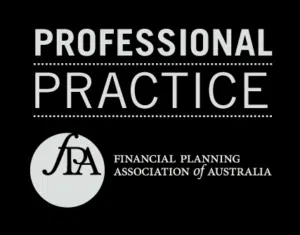1 July 2024
Estate Planning for Every Stage of Life

Estate planning is often associated with the end of life, but it is, in reality, a crucial process that spans every stage of life.
From young adults starting their careers to retirees enjoying their golden years, having a comprehensive estate plan ensures that your assets are protected, your wishes are honored, and your legacy is secured.
Understanding
Estate Planning
Estate planning involves creating a roadmap for the
management and distribution of your assets in the event of your incapacitation
or death. It goes beyond drafting a will; it includes setting up various legal
structures, like trusts and powers of attorney, to ensure your assets are
managed according to your wishes and that your loved ones are taken care of.
The
Importance of Estate Planning at Different Life Stages
1. Young Adults and Early Career
- Starting Early: Even if you’re just
beginning your career, estate planning is essential. A simple will can
ensure that your assets, no matter how modest, are distributed according
to your wishes. Additionally, setting up a durable power of attorney and
healthcare proxy ensures that your financial and medical decisions are
handled by someone you trust in case of an emergency.
- Building Foundations: As
you acquire more assets, such as a home or investments, revisiting your
estate plan to include these new assets is vital. This ensures that your
growing wealth is protected and efficiently transferred to your
beneficiaries.
2. Mid-Career and Family Life
- Protecting Your Family: For
those with families, estate planning takes on additional importance.
Creating a comprehensive plan that includes guardianship designations for
minor children and setting up trusts to manage their inheritance can
provide peace of mind.
- Tax Planning: Mid-career is an ideal
time to consider tax-efficient strategies for transferring wealth. Estate
taxes can significantly reduce the amount passed on to heirs, but with
proper planning, such as making
strategic gifts, you can minimise this burden.
3. Approaching Retirement
- Preserving Wealth: As
retirement approaches, the focus shifts to preserving the wealth you’ve
accumulated. This includes updating your will, ensuring your beneficiary
designations are current, and possibly setting up an irrevocable trust to
protect your assets from creditors and potential long-term care costs.
- Estate Planning Tools: At
this stage, more sophisticated estate planning tools, such as charitable
remainder trusts or family limited partnerships, might be considered to
manage and distribute wealth in a tax-efficient manner.
4. Retirement and Beyond
- Ensuring Continuity:
During retirement, maintaining an up-to-date estate plan ensures that your
wishes are honored without causing unnecessary stress for your heirs. This
includes managing distributions from retirement accounts, addressing
healthcare needs through advance directives, and ensuring smooth asset
transfer through trusts.
- Legacy Planning: For many, legacy planning
is about more than just financial assets; it’s also about values,
memories, and charitable intentions. Setting up a foundation or
donor-advised fund can help ensure that your philanthropic goals are met
and that your legacy endures.
Key
Components of a Comprehensive Estate Plan
1. Wills and Trusts
- Wills: A will outlines how your assets should be
distributed and can include guardianship provisions for minor children.
It’s a foundational document that every adult should have.
- Trusts: Trusts offer more control over asset
distribution, can reduce estate taxes, and help avoid probate. Revocable
living trusts, irrevocable trusts, and special needs trusts are examples
of how you can tailor your plan to meet specific needs.
2. Powers of Attorney
- Financial Power of Attorney: This
document allows someone you trust to manage your financial affairs if you
become incapacitated.
- Healthcare Proxy: This
designates someone to make medical decisions on your behalf if you’re
unable to do so.
3. Beneficiary Designations
- Regularly updating beneficiary designations on retirement accounts,
insurance policies, and other financial instruments ensures that your
assets go directly to the intended recipients.
4. Advance Directives
- Living wills and healthcare proxies ensure that your medical
preferences are respected, even when you cannot communicate them yourself.
Estate planning is a lifelong process that evolves with your circumstances and goals. By strategically planning and setting up the appropriate legal structures, you can protect your assets, ensure your wishes are honoured, and secure your legacy for future generations. No matter your age or stage in life, it’s never too early or too late to start planning for the future. Engage with estate planning experts to create a plan that reflects your unique needs and desires, ensuring peace of mind for you and your loved ones.

Philip Hall, Head of Financial Planning , Senior Adviser.
Freedom = Travel and Beach Time.

Phil is an experienced planner who enjoys working with clients to meet their financial goals now and into the future. Having previously been a teacher, Phil educates and guides clients; enabling them to make informed decisions to build, protect and manage wealth through a broad range of financial strategies.
Phil grew up in Hobart, but has worked and travelled widely overseas and interstate prior to returning and settling in Tasmania. He commenced working in the Financial Services industry in 2002 and has completed an Advanced Diploma in Financial Planning, several specialist courses in ASX listed products, SMSF, margin lending and is a Certified Financial Planner®. Phil enjoys travel, getting outdoors and spending time at the beach with his family.
Masters of Financial Planning, Bachelor of Education (Honours), CFP®, LinkedIn


















